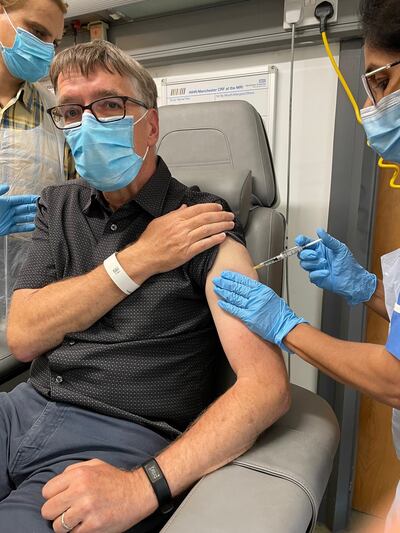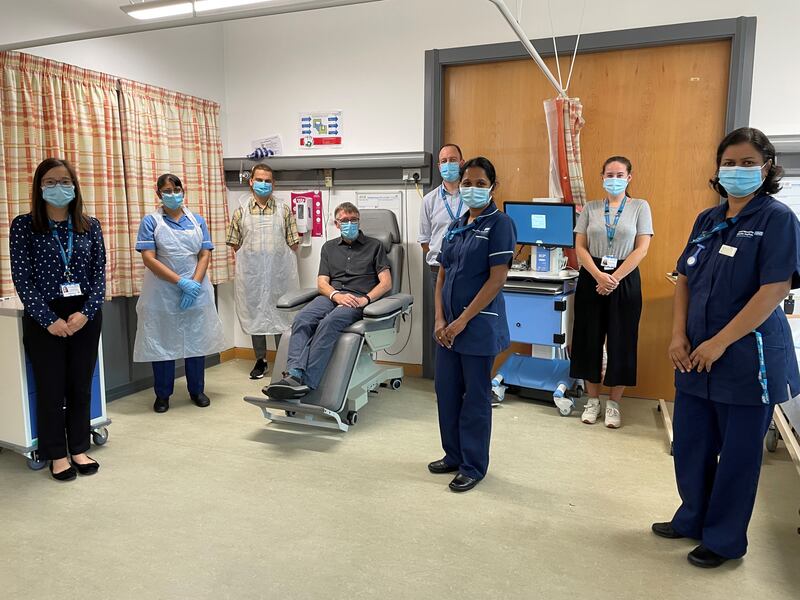Scientists in the UK are testing a new vaccine booster shot which they believe could offer greater protection against Covid-19 variants.
It is hoped that the new drug, GRT-R910, can boost the immune response of first-generation coronavirus vaccines.
The trial, which is being held in Manchester, will involve participants aged 60 and over.
First to receive the trial shots were retired NHS nurse Helen Clarke, 64, and her husband, Andrew, 63, from Bolton, Greater Manchester.
Mrs Clarke said: “I used to work in the NHS and had been involved in research as a nurse in the past.
“We’ve been amazed how quickly a vaccine was made and approved, and that couldn’t happen without volunteers.”
Mr Clarke added: “Somebody has to be the first and we’re confident in the science and technology behind this vaccine and convinced of the need for it.
“Because we’re both retired, we feel we had a reasonably easy lockdown, but we know it wasn’t the same for everybody.
“We feel that this is perhaps a small part we can play in helping to make things change.”
The trial is expected to recruit 20 more volunteers, with results expected early next year.

The trials are taking place at the National Institute for Health Research Manchester Clinical Research Facility (NIHR MCRF) at Manchester Royal Infirmary, part of Manchester University NHS Foundation Trust.
Prof Andrew Ustianowski, of Manchester University, one of the clinical leads of the study, said: “We now know the immune response to first-generation vaccines can wane, particularly in older people.
“Coupled with the prevalence of emerging variants, there is a clear need for continued vigilance to keep Covid-19 at bay.
“We think GRT-R910 as a booster vaccination will elicit strong, durable and broad immune responses, which are likely to be critical in maintaining protection of this vulnerable elderly population who are particularly at risk of hospitalisation and death.”
The research is a collaboration between US pharmaceutical company Gritstone, the University of Manchester and Manchester University NHS Foundation Trust.
GRT-R910 is a self-amplifying mRNA second generation Sars-CoV-2 vaccine — or SAM for short.
SAM vaccines may offer the opportunity of lowering vaccine doses or eliminating the need for repeat administrations with the potential for durable and broad immune responses across Sars-CoV-2 variants.
Such vaccines work by inducing special immune cells (CD8+ T cells), an important arm of the body’s immune response to viruses, as well as antibodies to neutralise the virus and prevent it binding to and infecting cells.
Dr Andrew Allen, co-founder and president of Gritstone, said: “Our hypothesis is that a different vaccine such as GRT-R910 might complement the primary immune response from pre-existing vaccination with a first-generation Covid vaccine in such a way that it would provide more benefit than an additional dose of the same vaccine.”
The study will examine dose, safety, tolerability and immunogenicity of GRT-R910 at two dose levels at least four months after the second administration of their initial vaccine.
GRT-R910 is also being investigated as part of a US National Institute of Health-sponsored Phase 1 study.






